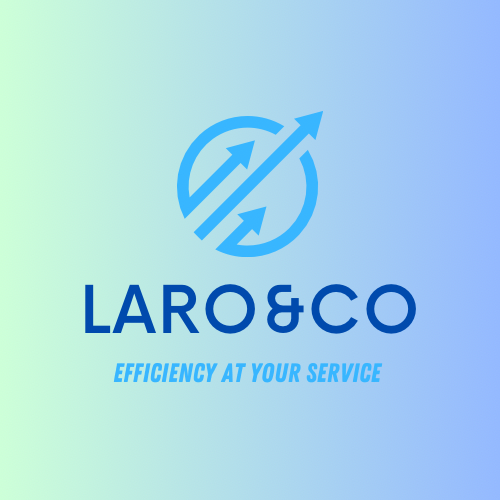Welcome to My Government Contracting Website
- Jessica LaRoda
- Feb 24
- 4 min read
Welcome to my government contracting website! I'm excited to share my journey and experiences as a government contractor over the past year. Here, I will be posting weekly updates, insights, and tips to guide you in successfully navigating the world of government contracts. My aim is to help individuals like you who are eager to apply for government contracts, providing everything from obtaining necessary documentation to bidding on contracts successfully.
Getting Started with Government Contracting
Government contracting can seem daunting, especially for small businesses, but it is a rewarding field with many opportunities. My goal is to simplify the process for you. It’s essential to understand the initial steps needed to get started. First, familiarize yourself with the System for Award Management (SAM). This system is the official government system that consolidates multiple federal procurement systems and is crucial for anyone wishing to contract with the federal government.
Here are the steps to getting started:
Register with SAM: Go to the SAM website and complete your registration. This process is free, and you will need your DUNS number, which is available at no cost through Dun & Bradstreet.
Market Research: Understand the types of contracts available and identify which contracts align with your business’s capabilities. Resources like FedBizOpps allow you to find federal contracting opportunities.
Create a Capability Statement: This is a concise document that outlines your business's technical and operational capabilities, past performance, and differentiators.

By following these steps, you'll lay a strong foundation for your government contracting journey.
Required Documents for Bidding on Contracts
Once you have registered and completed your initial research, the next step is gathering the necessary documents for bidding. Here are critical documents you will need:
DUNS Number: As mentioned earlier, this unique nine-digit code identifies your business.
Tax Identification Number (TIN): This is essential for your tax filings and must be submitted with your bid.
Financial Statements: Some contracts may require you to submit financial statements that show the stability of your business.
Contracts and Agreements: Any existing contracts or agreements can be beneficial to reference in your proposals to showcase your experience.
Capability Statement: This is not just a nice-to-have; many contracting officers request it as part of the proposal process.
By preparing these documents in advance, you'll be ready to submit bids once you find contracts that suit your business.

Building Knowledge without Breaking the Bank
A common misconception is that navigating government contracting requires a hefty investment in consulting services. Many individuals may be tempted to pay thousands of dollars for someone to guide them through the process, but I did this all for free. It is entirely possible to acquire the necessary knowledge and skills without spending a fortune.
Here are tips on how to learn effectively without incurring large costs:
Online Resources: Utilize free online resources for initial tutorials and guides. Government websites, such as the Small Business Administration (SBA) and the General Services Administration (GSA), offer a wealth of information.
YouTube: Channels like Kizzy Parks provide invaluable insights into the world of government contracting. Kizzy offers tips, strategies, and her experiences navigating the contracting landscape, which can save you time and money.
Networking: Join online forums and local meetups for fellow government contractors. Sharing experiences can lead you to new opportunities and valuable information.
By leveraging these resources, you’ll be able to build your knowledge base effectively.
Encouragement for Small Businesses
As we venture into the world of contracting, it's important to keep our spirits high. The journey can be challenging, but don't be discouraged. Small businesses have unique advantages, such as agility, personalized service, and innovation. Here’s how to stay motivated:
Set Achievable Goals: Outline your objectives and break them down into actionable steps. This helps to measure progress and keep the momentum going.
Join Support Groups: There are numerous platforms where small business owners come together to share experiences. Engaging in these communities can provide emotional support and practical advice.
Remember Your Why: Reflect on why you started your business in the first place. Keeping your passion at the forefront can help you push through difficult times.
Celebrate Small Wins: Every step forward is worth celebrating. Whether it’s completing your SAM registration or submitting your first bid, acknowledge your progress!
Stay persistent, and you'll not only survive but thrive in the government contracting space.
Final Thoughts on Your Contracting Journey
As we wrap up this introduction to government contracting, I want to remind you that this is a journey worth undertaking. With dedication and the right resources, you can build a successful government contracting business without spending vast amounts of money.
Stay tuned to this blog for weekly updates and insights as I share my own experiences and lessons learned, helping you navigate this exciting field. Remember, you don’t have to do this alone, there are plenty of resources and communities out there to assist you.
In the coming weeks, expect more detailed posts on specific contracts, real-life bidding experiences, and more tips to help you seize the opportunities available in government contracting.
Let’s embark on this journey together!



Comments